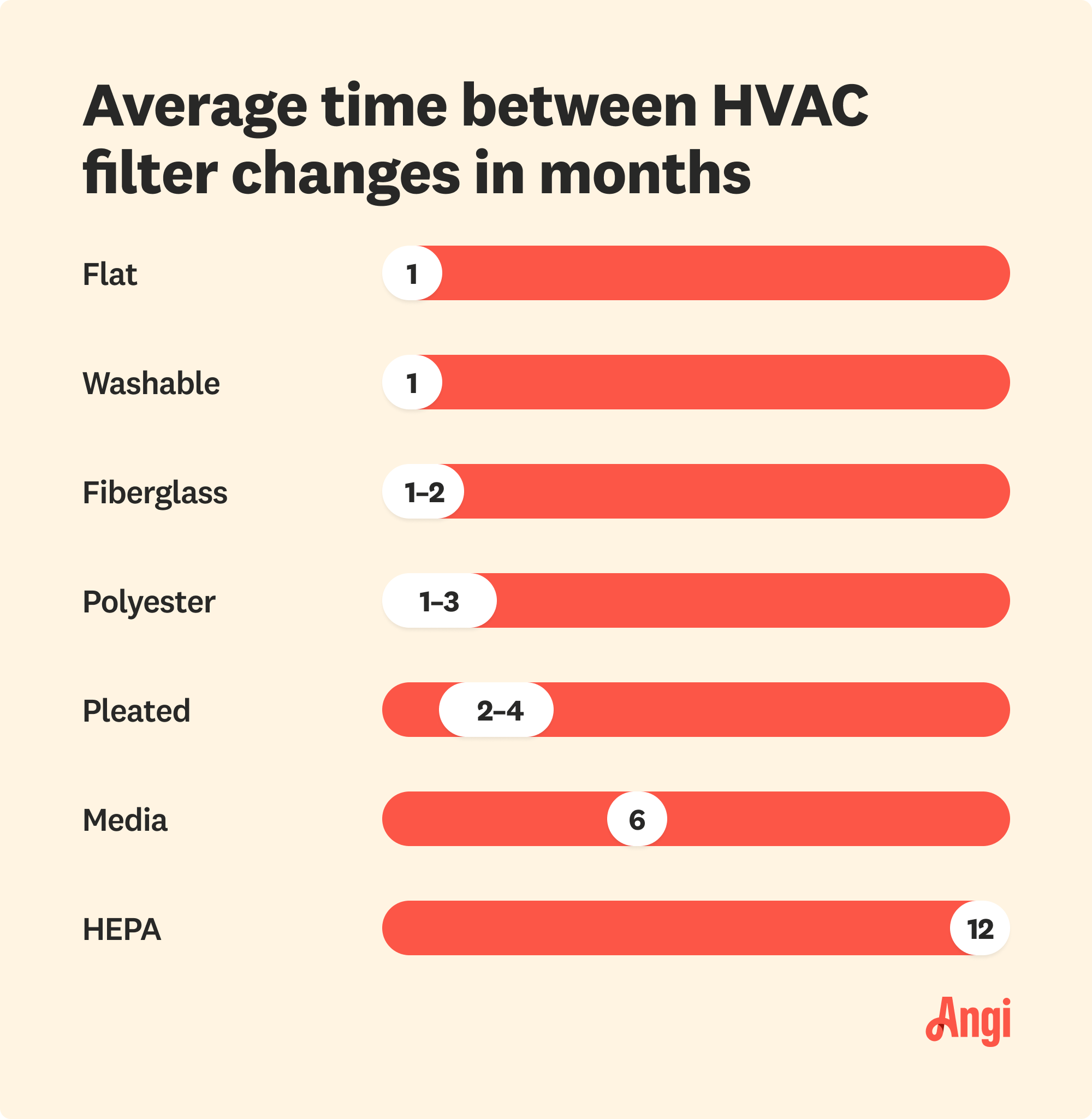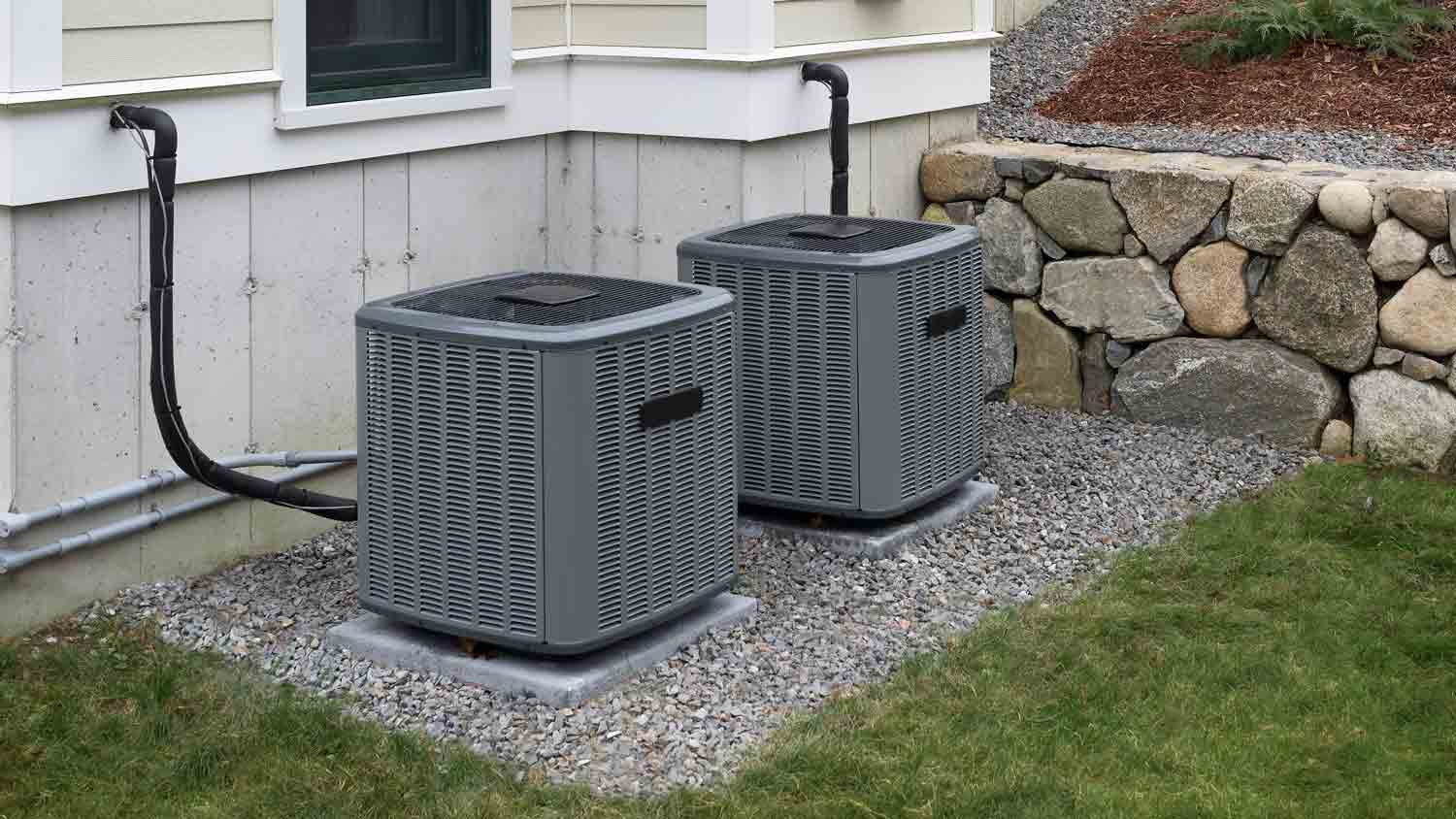
Find out the average humidifier repair cost, what impacts pricing, and how to save. Get expert tips to budget for your humidifier repair.
A snug filter fit keeps your system running smoothly


Using the wrong HVAC filter size can negatively affect the system’s performance and reduce indoor air quality.
There isn't a standard HVAC filter size, so you'll need to measure your unit carefully.
Check the length, width, and thickness of your HVAC filter.
The ‘nominal’ size on the box is a rounded-up version of the actual HVAC filter size.
Regularly replacing your HVAC filters is something even the least handy homeowner can do. But if you notice your HVAC system isn't working as well after making the change or your environmental allergies are suddenly set off, you could be making a common error. There are many HVAC filter sizes on the market, and selecting one that's even just an inch too small or large is a big no-no.
Here's how to pick the perfect HVAC filter size to prevent performance issues and problems with poor indoor air quality.

While some sizes are more common than others, there isn’t a standard, one-size-fits-all HVAC filter. They come in a wide range of lengths, widths, and thicknesses, which vary depending on the type of HVAC system, the manufacturer, and the model. For example, HVAC systems for bigger homes typically have larger HVAC filter sizes, and higher-rated filters that capture smaller polluting particles tend to be thicker.
This means that when purchasing a new filter, you might find 10 to 20 different options to choose from. You’ll have to do some accurate measuring to get the right HVAC filter size for your system.
Here are some common HVAC filter sizes:
| Filter Length (in) | Filter Width (in) | Filter Thickness (in) |
|---|---|---|
| 12 | 12 | 1 |
| 14 | 14 | 1 |
| 14 | 20 | 1 |
| 16 | 20 | 1 |
| 16 | 25 | 4 |
| 18 | 30 | 1 |
| 20 | 20 | 1 |
| 20 | 25 | 4 |
| 20 | 30 | 1 |
Unless you’re hiring a local HVAC professional to change your air filter as part of regular maintenance, you need to take accurate measurements to select the right HVAC filter size.
If you’ve kept the old air filter box, you might find the measurements there, but it’s always best to grab a tape measure and double-check the dimensions the old-fashioned way.
To turn off your air conditioning unit, flip the HVAC circuit breaker switch to the “OFF” position.
Locate the filters—your system may have more than one in different rooms. They are typically located inside the return air vents on your ceiling, wall, or floor.
Remove the vent grill to access the filter. If there isn’t a handle, you’ll need a screwdriver to remove the grill.
Remove the filter from its compartment.
Inspect to see if the measurements are printed on the filter frame.
If no visible measurements are available, use a tape measure to check the filter’s length, width, and depth in inches.
Be aware that the measurements are the actual filter size, not the rounded-up nominal size manufacturers often advertise.

Don’t just consider the length and width when picking from HVAC filter sizes.
The factor likely to cause the most confusion is that many manufacturers advertise the nominal HVAC filter size more prominently than the actual filter size.
The nominal size often represents the filter slot size rather than the actual filter dimensions. Think of it as a rounded-up version of the actual HVAC filter size, which might be a 1/4 or 1/2-inch smaller.
Don’t forget to measure the thickness of your HVAC filter. Most residential filters are 1-inch thick, but 4-inch thick filters are becoming increasingly common—and there are even some 5-inch whoppers on the market.
HVAC filters receive a Minimum Efficiency Reporting Value (MERV) rating to indicate the size of air particles they will trap. Filters with a higher MERV rating are often thicker. However, if your system can only accommodate 1-inch thick filters, you won’t be able to use these thick ones without upgrading your system. Even if you manage to squeeze a thicker filter into the sleeve in your system, this could block airflow, leading to HVAC problems and breakdowns.
Big homes with big rooms often have a larger, more powerful HVAC system. Bigger units often have larger air filters to help the system filter particles out of the space more effectively.
If you select the wrong HVAC filter size, don’t try to make do or run the furnace without a filter. Squeezing in an HVAC filter that is too big or thick can block airflow. You risk putting a strain on the system, affecting its lifespan, increasing energy bills, or resulting in avoidable HVAC repair costs. HVAC filters that are too small allow pollutants to enter your home, affecting indoor air quality and causing a buildup of dirt in the HVAC ductwork.
When you move into a new house, check that the HVAC filters are the right size. If they aren’t, you’ll want to change them immediately. It could also be worth arranging for a local air conditioning repair company to carry out an inspection to ensure this mistake hasn’t caused any damage to the unit.
From average costs to expert advice, get all the answers you need to get your job done.

Find out the average humidifier repair cost, what impacts pricing, and how to save. Get expert tips to budget for your humidifier repair.

When your HVAC system is acting up, it could be the blower motor to blame. See how much blower motor replacement costs and what impacts the price here.

The average boiler installation cost depends on size, system type, and other factors. Keep reading to learn the cost of a new boiler.

An HVAC zoning system makes your home more comfortable. Learn about installing a zone system, including HVAC zoning system costs and considerations.

Figuring out how to eliminate ductwork noise may require anything from replacing the ducts to changing the filter. Learn more about fixing this issue.

Furnace problems have all kinds of causes, ranging from clogged filters to damaged components. Here are some of the most common culprits behind these issues.